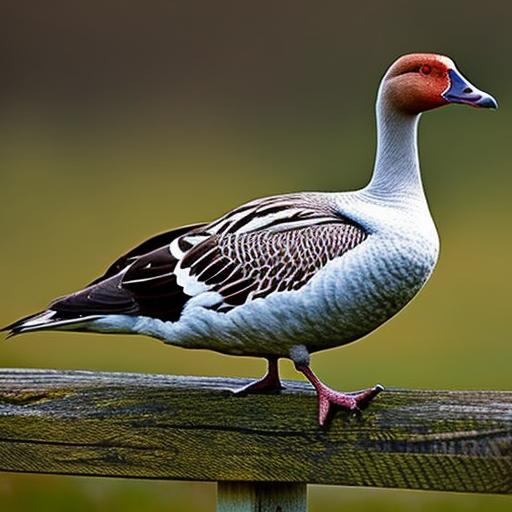Keeping geese can be a rewarding and enjoyable experience, but it’s important to understand the laws and regulations that govern their ownership. Whether you already own geese or are considering adding them to your flock, knowing and following these laws is crucial. This article will provide an in-depth look at the legal requirements for keeping geese, including permits and licenses, breeding and selling regulations, health and safety standards, feeding and care rules, roaming and noise restrictions, consequences of violating laws, enforcement of regulations, and resources for compliance.
Key Takeaways
- Keeping geese is subject to laws and regulations that vary by location.
- Legal requirements for keeping geese may include permits, licenses, and zoning restrictions.
- Breeding and selling geese may also be subject to regulations, such as health inspections and record-keeping.
- Geese housing must meet health and safety standards, including adequate space, ventilation, and protection from predators.
- Geese owners may face consequences for violating laws, such as fines or seizure of animals.
Legal Requirements
When it comes to keeping geese, there are legal requirements that must be met. These requirements vary depending on your location, so it’s important to research the specific laws in your area. In general, these laws exist to ensure the welfare of the geese and to prevent any negative impacts on the environment or neighboring properties.
Permits and Licenses
In some areas, owning geese may require permits or licenses. These permits are typically obtained from local government agencies or animal control departments. The purpose of these permits is to ensure that geese owners are knowledgeable about the care and management of their birds.
Examples of permits or licenses that may be required include a poultry permit, which allows you to keep geese as part of a larger poultry flock, or a waterfowl permit, which specifically allows for the ownership of waterfowl species such as geese. These permits may require an application process, fees, and inspections to ensure that your property meets certain standards.
Breeding and Selling Regulations
Breeding and selling regulations are in place to prevent the overpopulation of geese and to ensure that responsible breeding practices are followed. These regulations may include restrictions on the number of geese that can be bred or sold, as well as requirements for health testing and documentation.
It’s important to familiarize yourself with these regulations if you plan on breeding or selling geese. Violating these regulations can result in fines or other penalties, so it’s crucial to understand and comply with them.
Health and Safety Standards
When it comes to housing geese, there are health and safety standards that must be met. These standards are in place to ensure that geese are kept in a safe and healthy environment. Some of the key requirements include providing adequate shelter, clean water, and proper nutrition.
To meet these standards, it’s important to provide geese with a secure and predator-proof enclosure. This can be a fenced-in area or a dedicated goose house. Additionally, geese should have access to clean water at all times, as well as a balanced diet that includes appropriate feed and fresh greens.
Feeding and Care Rules

Feeding and caring for geese requires knowledge and understanding of their specific needs. It’s important to provide them with a balanced diet that includes a mix of commercial feed, fresh greens, and access to clean water. Additionally, geese should be provided with appropriate shelter and protection from extreme weather conditions.
Regular health checks are also important to ensure the well-being of your geese. This includes monitoring for signs of illness or injury, as well as providing necessary vaccinations or treatments as recommended by a veterinarian.
Roaming and Noise Restrictions
Geese are known for their loud honking and can be quite territorial. As a result, there may be restrictions on their roaming and noise levels in certain areas. These restrictions are in place to prevent disturbances to neighbors or other animals.
To prevent your geese from causing disturbances, it’s important to provide them with a secure enclosure that prevents them from wandering onto neighboring properties. Additionally, consider providing them with distractions such as toys or treats to help keep them occupied and reduce noise levels.
Consequences of Violating Laws
Violating geese-keeping laws can have serious consequences. Depending on the specific laws in your area, you may be subject to fines, penalties, or even the seizure of your geese. It’s important to understand and follow these laws to avoid legal trouble.
Enforcement of Regulations
The enforcement of geese-related regulations is typically carried out by local government agencies or animal control departments. These agencies are responsible for ensuring that geese owners are in compliance with the law and may conduct inspections or respond to complaints from neighbors.
If you are found to be in violation of geese-keeping laws, you may be issued a warning or citation. In some cases, the agency may require you to make changes to your property or practices to come into compliance.
Resources for Compliance
Staying compliant with geese-keeping laws and regulations can be made easier by utilizing available resources. There are websites, organizations, and other resources that can provide information and guidance on the specific laws in your area.
Local government websites often have information on permits and licenses required for keeping geese, as well as any specific regulations that must be followed. Additionally, organizations such as poultry associations or waterfowl clubs may provide resources and support for geese owners.
Understanding and following the laws and regulations surrounding the ownership of geese is crucial for anyone who owns or plans to own these birds. From permits and licenses to breeding and selling regulations, health and safety standards, feeding and care rules, roaming and noise restrictions, consequences of violating laws, enforcement of regulations, and resources for compliance, there are many factors to consider.
By staying informed about these laws and regulations, geese owners can ensure the well-being of their birds while also avoiding legal trouble. It’s important to research the specific laws in your area and utilize available resources to stay compliant. With proper knowledge and understanding, keeping geese can be a rewarding experience for both the birds and their owners.
If you’re interested in laws regarding the keeping of geese, you may also find this article on chicken coop and run plans from Poultry Wizard informative. It provides detailed instructions and tips on how to build a suitable enclosure for your chickens, which can be helpful when considering the legal requirements for keeping geese as well. Check it out here.
FAQs
What are the laws on keeping geese?
There are different laws on keeping geese depending on the country or state. It is important to check with the local authorities for specific regulations.
Do I need a permit to keep geese?
In some places, a permit may be required to keep geese. It is best to check with the local authorities for specific regulations.
What are the requirements for keeping geese?
The requirements for keeping geese may vary depending on the location. Some common requirements include providing adequate shelter, food, water, and space for the geese to move around.
Can I keep geese in my backyard?
In some places, it may be legal to keep geese in a backyard as long as certain requirements are met. It is best to check with the local authorities for specific regulations.
What are the consequences of breaking the laws on keeping geese?
The consequences of breaking the laws on keeping geese may vary depending on the location. In some cases, fines or legal action may be taken against the owner of the geese.
Meet Walter, the feathered-friend fanatic of Florida! Nestled in the sunshine state, Walter struts through life with his feathered companions, clucking his way to happiness. With a coop that’s fancier than a five-star hotel, he’s the Don Juan of the chicken world. When he’s not teaching his hens to do the cha-cha, you’ll find him in a heated debate with his prized rooster, Sir Clucks-a-Lot. Walter’s poultry passion is no yolk; he’s the sunny-side-up guy you never knew you needed in your flock of friends!







